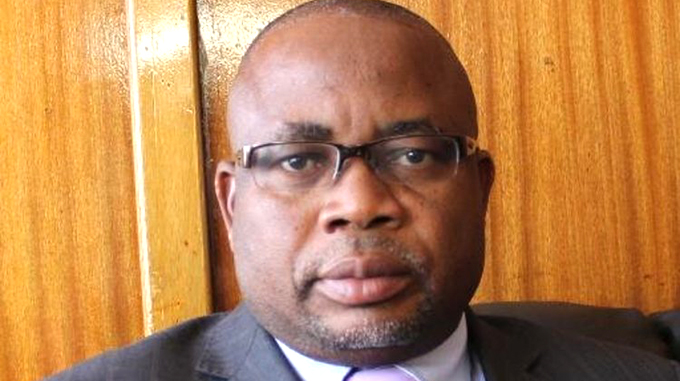Textile industry urged to take advantage of sector’s value chain

Michael Tome recently in Chegutu
INDUSTRY and Commerce Minister Nqobizitha Ndlovu has challenged major firms in the textile industry to harness full benefits of the sector’s value chain as it is a low hanging fruit.
Zimbabwe uses 30 percent of locally grown cotton and 70 percent is exported to textile industries dotted around the world, hence failing to exploit competitive advantage in cotton value chain considering the country’s ability to grow the essential raw material locally.
Being mindful of the fact that some countries like Kenya have a thriving textile industry from cotton imports, Zimbabwe is losing out on 100 percent gains associated with growing and value adding cotton locally.
The local fabric market is now dominated by imports particularly from China, Pakistan and India. Most clothing retail shops are also largely packed with imported clothes.
Early this year uniform prices skyrocketed beyond the means of the majority of ordinary citizens owing to a deficiency created by an incapacitated textile industry.
Clothing companies now import garments worth millions of dollars yearly rendering textile industry redundant.
Zimbabwe has potential to restore its status as a major producer and supplier of textile products in Africa and beyond a position it has held in preceding years.
During his tour of the David Whitehead Company in Chegutu on Friday, Minister Ndlovu indicated he was elated by the improvement in cotton production lately but was dismayed by non-functional value chains considering that the bulk of cotton processing companies are either under judicial management or court-directed reconstruction.
He said this resulted in minute extraction of value from the crop locally.
“The textile industry is not good. I am encouraged by the fact that we have improved our cotton production and it can only need a better performing textile sector for us to have a well-functioning throughput system of our cotton.
“Currently, we are using locally around about 30 percent of our cotton produce and about 70 percent is exported raw and we go after our cotton to bring in the fabric because we are not processing it and that is not healthy situation. So it’s a sector that we are really focusing on to see if there are ways of supporting it.
“I would be happy if we are able to process all our cotton and export the fabric that’s the best way we can extract more value from our produce,” said Minister Ndlovu.
He was, however, confident with progress being made at David Whitehead under the judicial management of Knowledge Hofisi who assumed the management in 2014.
In 2017 the company was rescued from state of insolvency through a $2 million dollar working capital from Zimbabwe Asset Management Corporation (ZAMCO), which helped in restoring a portion of operations.
Minister Ndlovu singled out the textile sector as a low hanging fruit and government was eager to see the sector back on its legs.
“We are happy that its one sector that is predominantly private sector led but our concern of late is that there are a lot of disputes in some of the big companies in the textile industry.
“I visited quite a number of these companies and this is the last one of the big one. I have been to Bulawayo just to appreciate what is happening and what we saw here is that David Whitehead is firmly on a good path to recovery.
“There is an investor who has come on board and from what they told us, by the end of the year we expect to start the process of bringing in new equipment and they expect to even have concluded the process of having a judicial manager in charge of the operations.
“David Whitehead is one of strategic companies in our economy particularly the textile sector. The sector is one of our priority areas, we are trying to have a firm understanding of the issues they are going through so that we are able to come up with appropriate support mechanisms but also to see if there are issues that require other interventions,” he said.
Speaking on the sidelines of the tour David Whitehead Judicial manager Mr Hofisi said he was optimistic that the company would meet creditors’ requirements before the end of the year after which production would start.
“Now that an investor has been taken aboard and as you are aware the investor has acquired a 51 percent stake, the new investor made a commitment to ensure that all prejudicial management creditors will be paid in full. Once those processes are completed the company will be removed from judicial management.
“It is our view that those processes will be finalised in the third or final quarter of 2019 paving way for production,” said Mr Hofisi.
Mr Hofisi indicated that the management was satisfied with the investor considering his financial muscle and technical expertise to grow the company. He pointed out the investor is the excellent candidate considering his known exploits in the sector and long-term objective of garment making.
“We are happy with the investor on two perspectives one, he has the financial capacity secondly technical expertise.
“The investor has quite a number of businesses in and around the country we anticipate that there will be linkages in terms of carrying out business, like here in Chegutu the investor acquired Cargill as a result of that position he has strategic proximity between David Whitehead and former Cargill.
“The investor has the aspect of going further into garment construction, so we are looking at the use of the entire value chain.
David Whitehead owns three business units in the towns of Chegutu, Kadoma and Gweru delisted from the Zimbabwe Stock Exchange in 2007. Former chief executive Edwin Chimanye owns 13 percent in DW while other six former executives holds 23, 1 percent.
DW Employee Trust owns about 7,11 percent.








Comments